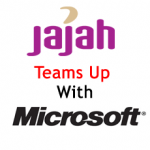 Sunnyvale, California — In an effort to expand its international presence, Internet pioneer Yahoo on Tuesday made a bold move, announcing that it has signed an agreement to acquire “Maktoob.com,” the leading online community in the Arab world with more than 16.5 million users.
Sunnyvale, California — In an effort to expand its international presence, Internet pioneer Yahoo on Tuesday made a bold move, announcing that it has signed an agreement to acquire “Maktoob.com,” the leading online community in the Arab world with more than 16.5 million users.
The deal has been talked about in tech circle for months and has just been confirmed by both parties. The financial details of the transaction were not disclosed but several sources put it between $75 million and $85 million.
The acquisition would be completed in the fourth quarter, Yahoo! said in a statement.
“This acquisition will speed up Yahoo!’s strategy of expanding in high-growth developing markets where we believe Yahoo! has unparalleled opportunity to become the destination of choice for consumers,” Carol Bartz, Yahoo CEO, said.
Initially, Yahoo will offer Arabic versions of Yahoo Mail, Messenger, Search, and the Yahoo.com homepage. These services will include an Arabic interface with right-to-left page orientation, and will include local content.
“Maktoob reaches one in every three people online throughout the region — or 16.5 million people,” Keith Nilsson, senior vice president for emerging markets at Yahoo, wrote in a blog post. “This will be Yahoo’s biggest geographic expansion in years.”
Maktoob founder Samih Toukan called the two companies “natural partners.”
The partnership, he said, “should help energize the Internet market in the region as a whole. We are excited about Yahoo! building a stronger presence in the Middle East and bringing its compelling suite of services to Arab users in Arabic.”
Yahoo, which already enjoys around 20 million users in the area, close to half of the Arab world’s online population, “has held a weak presence in the Arab region, with no dedicated portal to speak of,” wrote TechCrunch’s Jason Kincaid.
“The deal effectively gives Yahoo! an instant foothold in the market.” Eventually, Yahoo plans to introduce localize versions of its biggest properties like news, sports, and finance, Nilsson said, as well as locally relevant content. “We are committed to literally translating our winning formula for this growing market in many ways, including through locally-based editorial teams,” he wrote.
Nilsson acknowledged cultural differences that will make it difficult to develop a site that appeals to the entire region.
“The Middle East is deeply complex, a complexity mirrored in the online world, and that it will present certain challenges,” he wrote. “This means being sensitive to local laws, customs, and norms while also protecting and promoting the rights of our users. We believe our engagement in the Middle East can be a positive force for people by increasing access to information, supporting a thriving marketplace for the exchange of ideas, and bridging local, regional, and international communities.”
The effort is particularly important given that “Arabs are vastly under-served by today’s Internet offerings,” he wrote.
Maktoob was founded in 2000 and is popular in such countries as the United Arab Emirates, Jordan, Kuwait, Egypt, and Saudi Arabia.
Maktoob.com says, the portal “reaches one in three people online throughout the Arab world.”
And there is room to grow. Citing figures from the World Bank, Yahoo noted that more than 320 million people worldwide speak Arabic, but less than 1 percent of all online content is in Arabic.
“Access to information and communications tools can certainly impact people’s lives in many ways,” Yahoo’s Bartz said in a statement, “and with the acquisition of Maktoob.com and our investment in the region, the Arab world will soon get a Yahoo experience in Arabic with relevant local language content, programming and services.”
Yahoo and Maktoob also touted the potential for advertising dollars. “Advertisers will be able to take advantage of the vast reach of the newly combined audiences to effectively market to consumers across the region,” said Ahmed Nassef, general manager of Maktoob.com.
“We see great growth potential in both audience and advertising in the Arab world and combining with Maktoob.com will allow us to quickly build our presence there with high quality products,” Nilsson said.
The acquisition is expected to be finalized in the fourth quarter, after which Maktoob will become a wholly owned subsidiary of Yahoo. Other Maktoob properties like Souq.com, cashU.com, Araby.com, and Tahadi.com, will operate under the newly created Jabbar Internet Group, which will be managed by Maktoob founder Samih Toukan. Nassef will retain his post and report to Nilsson.
For existing Maktoob members, Yahoo will roll out a way to for registered users to access Yahoo in the coming months. Yahoo has not released information on what Web site address the combined Yahoo-Maktoob will use. The company will offer localized e-mail domains, but details on that have also not been released.


